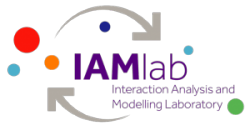Our work investigating the effects of data preprocessing on detecting autism in adults using web-based eye-tracking data is published in BIT journal!
Erfan Khalaji, Sukru Eraslan, Yeliz Yesilada and Victoria Yaneva. Effects of data preprocessing on detecting autism in adults using web-based eye-tracking data. Behaviour & Information Technology, 2022. https://doi.org/10.1080/0144929X.2022.2127376
Abstract: Autism Spectrum Disorder (ASD) is a neurodevelopmental disorder, often associated with social and communication challenges and whose prevalence has increased significantly over the past two decades. The variety of different manifestations of ASD makes the condition difficult to diagnose, especially in the case of highly independent adults. A large body of work is dedicated to developing new and improved diagnostic techniques, emphasising approaches that rely on objective markers. One such paradigm is investigating eye-tracking data as a promising and objective method to capture attention-related differences between people with and without autism. This study builds upon prior work in this area that focussed on developing a machine-learning classifier trained on gaze data from web-related tasks to detect ASD in adults. Using the same data, we show that a new data pre-processing approach, combined with an exploration of the performance of different classification algorithms, leads to an increased classification accuracy compared to prior work. The proposed approach to data pre-processing is stimulus-independent, suggesting that the improvements in performance shown in these experiments can potentially generalise over other studies that use eye-tracking data for predictive purposes.
